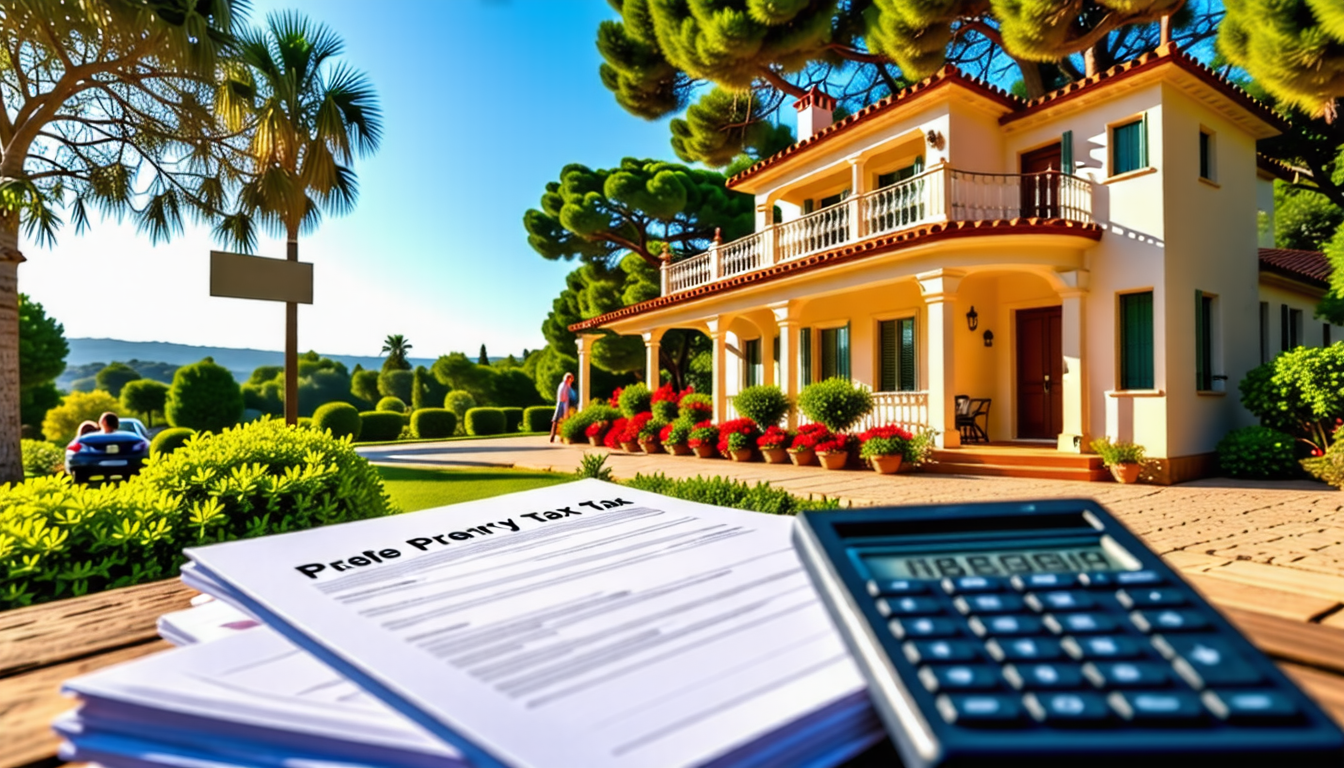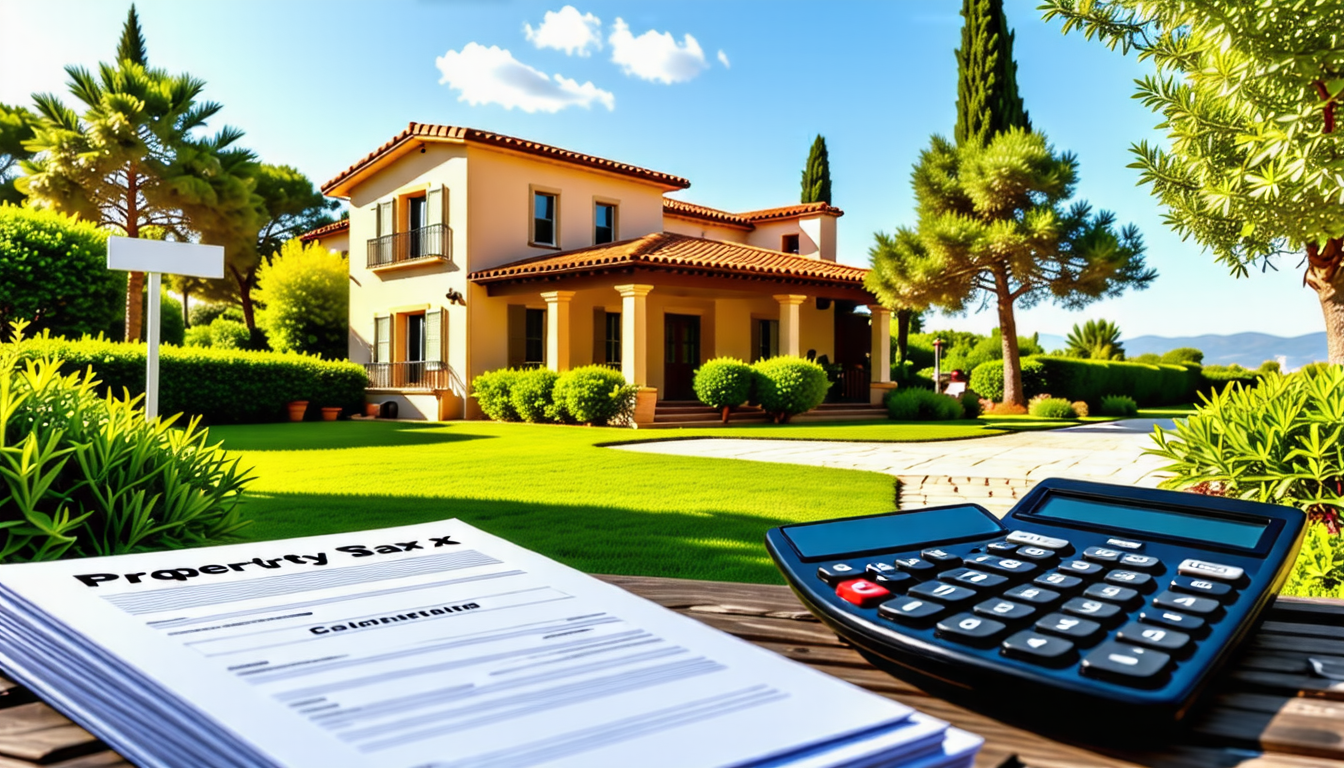|
IN BRIEF
|
When considering investing in real estate in Spain, one crucial aspect often overlooked is the property tax. This tax is not merely a bureaucratic obligation but a key element that can significantly impact your overall budget and investment strategy. Owning property in Spain comes with various financial responsibilities, including municipal taxes such as IBI (Impuesto sobre Bienes Inmuebles), which is levied annually based on the property’s cadastral value. Additionally, investors must be aware of potential increases in local taxes and other associated costs, making it essential to understand the financial landscape of property ownership. Whether you’re a seasoned investor or a first-time buyer, grasping the intricacies of Spanish property tax can safeguard your investment and enhance your experience in this vibrant market.

Understanding Property Tax in Spain
Property tax, known as Impuesto sobre Bienes Inmuebles (IBI), is a municipal tax levied on property ownership. It is essential for homeowners to comprehend this financial obligation, as it can significantly impact the overall cost of owning property in Spain. Additionally, various factors influence the amount one needs to pay, including the property’s location, type, and value.
The Basics of IBI
The IBI is assessed annually based on the cadastral value of your property, which is determined by the local government. This value often differs from the market value, as it is usually calculated on certain criteria such as construction costs, the age of the property, and its location. Notably, properties in urban areas tend to have a higher cadastral value compared to rural properties. Consequently, homeowners should be aware of these differences to anticipate their tax liabilities accurately.
What Determines Your IBI Rate?
The IBI rate can vary significantly between municipalities; each local council sets its own rates within a range established by the provincial government. Typically, the IBI rate falls between 0.4% and 1.1% of the cadastral value of the property. Therefore, if you plan to invest in property across different regions in Spain, it is crucial to research the specific IBI rates applicable in those areas.
Factors Influencing the Cadastral Value
Several factors influence the cadastral value of a property, including:
- Location: Urban properties generally have higher value due to demand and amenities.
- Property Size: Larger properties typically have a higher cadastral value.
- Property Type: Different types of properties (e.g., residential, commercial) may be appraised differently.
- Condition and Age: Newly constructed properties may be valued higher than older properties that require renovations.
Additional Taxes When Buying Property
In addition to the annual IBI, homeowners should also consider other taxes applicable when purchasing property in Spain. The most significant of these is the Transfer Tax (Impuesto de Transmisiones Patrimoniales), which ranges depending on the region and property type. This tax generally falls between 6% and 10% of the property’s purchase price.
Legal Requirements for Buying Property
Understanding the legal requirements for purchasing property in Spain is essential for new buyers. Before completing the purchase, it is critical to ensure that all taxes and other legal obligations are settled. A notary will need to verify that the property’s documentation is in order, including any outstanding debts.
Exemptions and Reductions on IBI
There are various exemptions and reductions applicable under specific circumstances. For instance, elderly homeowners, large families, and individuals with disabilities may be eligible for certain reductions in their IBI payments. It is advisable to consult your local council to ensure you are aware of any potential benefits available.
Understanding Other Property-Related Taxes
Beyond IBI and transfer tax, homeowners should also recognize other taxes that might apply to their property. For instance, if the property generates income, such as through rentals, owners are subject to an income tax on that rental income. Additionally, non-resident property owners may face an annual tax based on the income they could potentially earn from their properties.
Mortgage Application Considerations
If you plan on financing your property with a mortgage, understanding the mortgage application process is essential. Lenders typically require that you factor property taxes into your budget to ensure that you can afford ongoing costs. Therefore, planning ahead becomes vital in maintaining a healthy financial position.
Budgeting for Property Tax in Spain
To budget effectively for property taxes, it is advisable to estimate the cadastral value of your property and then apply the local IBI rate. For example, if your property has a cadastral value of €200,000 and your municipality’s IBI rate is 0.6%, your estimated annual property tax would be €1,200. This budgeting exercise will evaluate whether your financial situation allows for property ownership and taxes.
Paying Your Property Tax
Property taxes are typically due annually, and homeowners will receive a bill from their local council providing details on the amount owed. It is important to pay these taxes on time, as failure to do so could result in penalties or interest accruing on the unpaid amount. Various payment options are usually available, including online payments, bank transfers, or direct debit arrangements.
Consequences of Unpaid Property Tax
Unpaid property taxes can lead to serious consequences, including the potential for the local council to place a lien on the property or even auction it to recover owed taxes. Therefore, staying updated on your tax obligations and timely payments is crucial for maintaining ownership of your property without complications.
Property Tax for Non-Residents
For non-resident property owners, property tax obligations remain similar to those of residents. Non-residents must adhere to the same IBI requirements and ensure that they pay any applicable taxes. However, they may also have additional tax responsibilities, particularly regarding potential income derived from the property, such as rent.
Taxes for Rental Properties
If you own a rental property in Spain, you will be subject to income tax on the rental income generated. Non-residents renting out property in Spain are typically taxed at a flat rate of 24% on their gross rental income. Proper accounting for expenses and deductions is crucial when determining taxable income.
Resources for Property Owners
Homeowners in Spain can access various resources to assist them in understanding their financial responsibilities. Engaging with real estate professionals and accounting experts can provide clarity regarding property tax obligations and strategies for minimizing tax liabilities. This guidance is particularly valuable for foreign investors who may not be familiar with the Spanish property landscape.
Conclusion on Property Payments
Overall, understanding how much you need to pay for property taxes in Spain is vital for successful property ownership. The combination of IBI, additional taxes, and other fiscal responsibilities can become complicated, making it crucial for homeowners to remain informed and proactive in managing these financial obligations. By staying abreast of changes in local taxation laws, setting a budget, and planning for the future, property owners can ensure a positive experience in the Spanish real estate market.

When considering a property purchase in Spain, understanding property tax obligations is essential for foreigners. The main tax homeowners need to account for is the Impuesto sobre Bienes Inmuebles (IBI), which varies depending on the municipality. Typically, IBI rates fall between 0.4% and 1.1% of the property’s cadastral value, which is assessed by local authorities. It’s crucial to check the local municipal laws to confirm accurate rates and assess potential financial commitments.
Additionally, property owners are subject to the Non-Residents Income Tax (NRIT) if the property is not their primary residence. This tax is calculated on the perceived rental value of the property, commonly set at 19% for EU residents and 24% for non-EU residents. Moreover, if the property is sold, capital gains tax applies, varying between 19% and 26% depending on the profit earned from the sale.
Therefore, prospective buyers should conduct thorough research regarding legal requirements and consult with professionals to avoid any unexpected financial pitfalls. Engaging with local real estate professionals can help navigate these complexities effectively.

Understanding Property Tax Obligations in Spain
When considering the purchase of real estate in Spain, it is crucial to be aware of the various property taxes that buyers will encounter. The most significant tax is the Property Transfer Tax (ITP), which usually ranges from 6% to 10% of the purchase price, depending on the region. New properties may be subject to the Value Added Tax (VAT), which stands at 10% for residential real estate and 21% for commercial properties. Understanding these taxes ensures that buyers are financially prepared and avoid any surprises during the transaction.
In addition to the initial taxes incurred during the purchase, there are ongoing annual property taxes that homeowners must consider. One of the most notable is the Impuesto sobre Bienes Inmuebles (IBI), which is similar to a municipal property tax. The rate can vary significantly based on the property’s location and its cadastral value and typically ranges from 0.4% to 1.1%. Owners should conduct research to estimate these annual costs accurately.
Moreover, for non-resident taxpayers, an annual income tax based on the ownership of the property may apply even if the property is not rented out. This tax is calculated based on a percentage of the property’s value, which can affect budgeting for legal and financial obligations associated with property ownership in Spain.
Proper financial planning is essential for anyone looking to invest in Spanish real estate. Familiarizing oneself with these tax obligations ensures that property purchases remain within budget and there are no unforeseen fiscal challenges subsequent to buying the property, allowing for a smoother transition into Spanish property ownership.
What is the property tax in Spain?
R: The primary property tax in Spain is known as the Impuesto sobre Bienes Inmuebles (IBI), which resembles a local council tax. The amount varies depending on the municipality and can range from 0.4% to 1.1% of the property’s cadastral value.
When do you need to pay property tax in Spain?
R: The property tax (IBI) is usually paid annually. Each local authority defines its own deadlines, but payments typically occur in the spring or autumn months. It’s essential to check with the local council for specific dates.
Are there any exemptions or reductions for property tax in Spain?
R: Yes, certain exemptions or reductions may apply, such as for properties classified as historical buildings or for elderly individuals living alone. Additionally, properties used for social housing may also benefit from reduced rates.
What happens if you fail to pay property tax on time in Spain?
R: Failing to pay the IBI on time can lead to penalties, including fines and interest charges on the amount owed. Moreover, persistent non-payment may result in the local authorities initiating legal proceedings to recover the debt.
Can foreign property owners be taxed differently in Spain?
R: Foreign property owners are subject to the same property tax rules as Spanish residents. However, they may need to ensure that their tax obligations are fulfilled in both Spain and their home country, especially if the property generates revenue.

